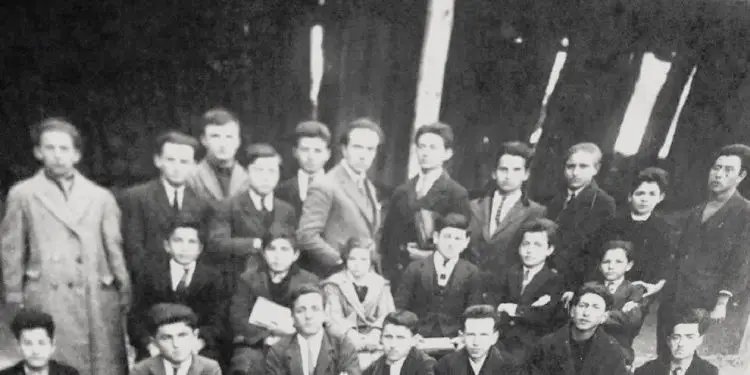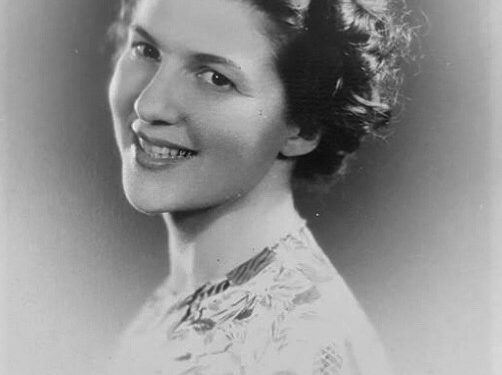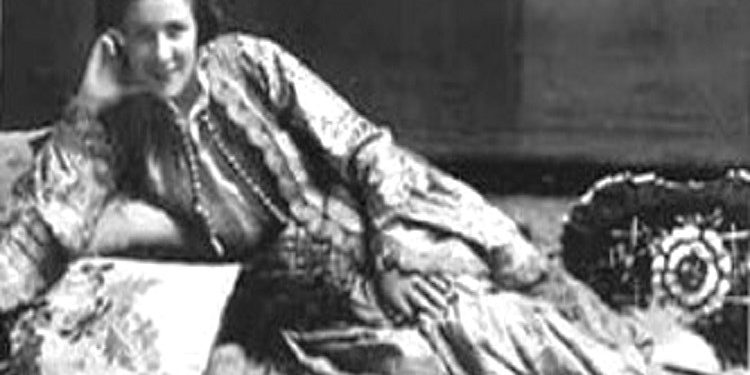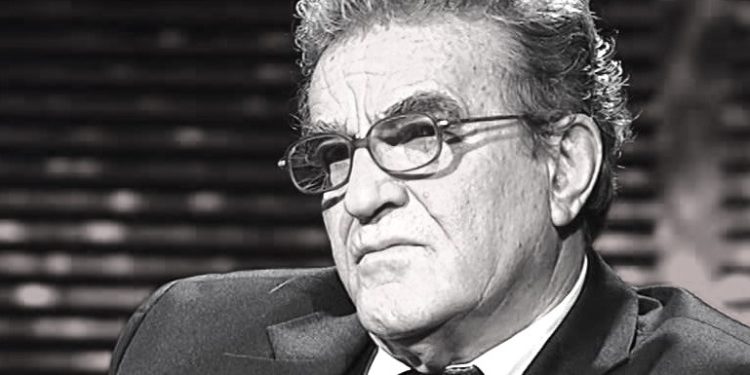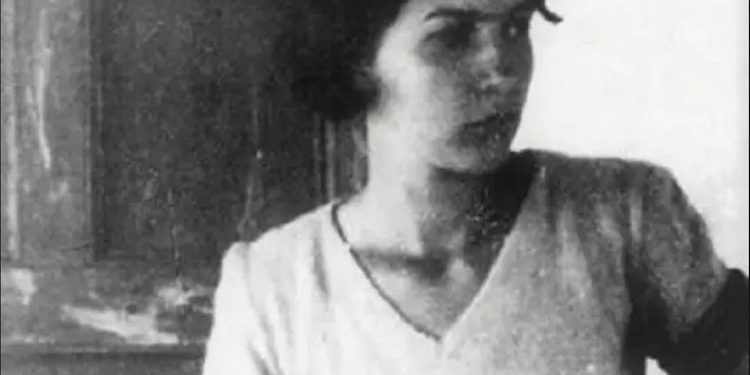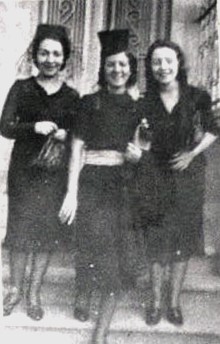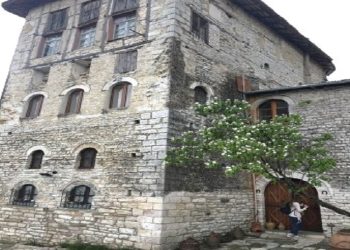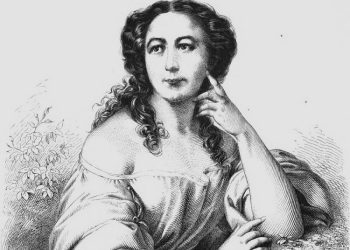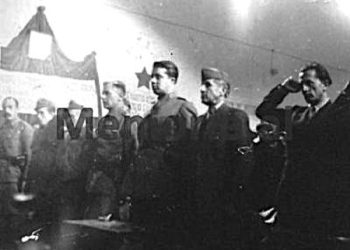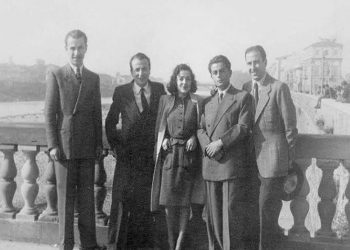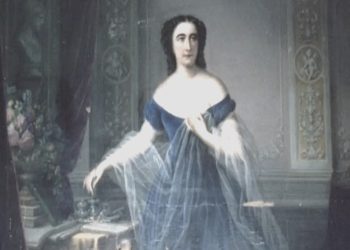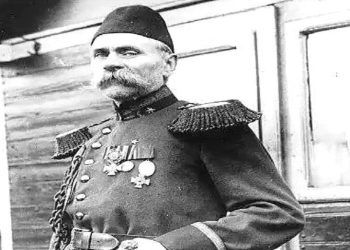By Dr. Ledia Dushku and Doris Pasha
The third part
“Communist regime and the researcher”, the case of biologist Sabiha Kasimati
Memorie.al / The article ‘Communist regime and the researcher’: the case of biologist Sabiha Kasimati, aims to present essential aspects of Sabiha Kasimati’s activity, as an intellectual and researcher, placed in the historical context of the time. The analysis primarily aims to answer the question of who Sabiha Kasimati was and what she represented, before the establishment of the communist regime, in order to further understand the regime’s behavior towards her. The presentation of the character in several perspectives helps the reader to understand to what extent the behavior of the regime towards the intellectual was conditioned by the scientific activity, the features of the psychological profile, or the relationship with the senior communist leaders, in the case of Sabiha Kasimati with Enver Hoxha himself.
Continues from the previous issue
In addition to intellectual work, the second aspect that conditioned the relationship of the communist regime with Sabiha Kasimat, was the free nature in relations with people, the freedom to openly express one’s opinion, as well as to oppose the economic and cultural policies that the communist regime was following in Albania. For this reason, it should have been put under surveillance early on by the State Security, considering; “enemies of popular power”. To date, we do not have direct data on the time and level of surveillance, as there is no personal form file in the State Security Archive fund.
According to the former director of the Archive of the Ministry of Internal Affairs, researcher Kastriot Dervishi, the personal files of the State Security form, for all those who were executed on February 22, 1951, under the charge of the bomb in the Soviet Legation, of which it is a part and Kasimati, have been eliminated.
However, we were able to find some information about Sabiha Kasimat through indirect research, by consulting the form file of Eqrem Çabej, a researcher at the Institute of Sciences. There you understand that Kasimati openly expressed her dissatisfaction with the regime. In the report of the Security associate, with the pseudonym “Pruresja”, on April 27, 1950, it is noted that Sabiha Kasimati said: “It is interesting to have all the issues of the newspapers that contain the discussions, rather than the Commander’s report. Who wastes time in vain, while in discussions, you can find interesting things”!
She also appeared critical in relation to “the discussion that Lieutenant General Mehmet Shehu had made, about the ‘Youth Group’, accusing them of being morally weak”. The report showed that Kasimati had expressed dissatisfaction with the policies followed by the communist leaders, regarding the framework: “Our leaders, when they want to put someone else in the Central Committee, whom they trust the most, remove someone they had, but that you have lost faith. They made some useless accusations, that if he implemented them; he still implemented them with their order”!
In the report dated September 22, 1950, again by the associate “Pruresja”, it was evident that; “Kasimati meets with captains and women who have criminal husbands with a stamp”. She even expressed her dissatisfaction with the economic situation and poverty in the country, which can be seen in her statements: “The press and the radio say that the Americans feed the fugitives with horse meat, but this one of these boxes here, what it is?” That we don’t even have these. It is rare for us to have them, even these with the help of our friends”!
Meanwhile, in the report on the Institute of Sciences, dated September 3, 1950, that Misto Treska, in charge of the Culture and Arts Section in the Agit-Prop Directorate in the PPS Central Committee, sent to Bedri Spahi, considered Sabiha Kasimati, together with Eqrem Çabejn; “people who neither politically nor ideologically have anything in common with us, they can’t even be educated or corrected”!
The tragic end of the biologist Kasimati
The most culminating moment in the relationship of the communist regime with Sabiha Kasimat, is her arrest and execution, along with 21 other people, most of them merchants, civil servants, accused of the attack on the Soviet Legation. The placement of the “bomb” in the Soviet Legation, on February 19, 1951, would be considered a terrorist attack against the regime and would be used as a pretext for the beginning of a purge against “enemies of the people”.
At the meeting of the Political Bureau, on February 20, 1951, Mehmet Shehu declared: “Extraordinary measures must be taken, regardless of the laws in force. We also took such a measure when Bardhok Biba was killed, i.e., we shot even outside the laws in force. We must respond to terror with terror and we can do this with full conscience and coolness. We have prepared the lists of arrests and if you agree, we will act from tonight”?!
Arrests began immediately. The researcher Kastriot Dervishi, after consulting the documents in the Archive of the Ministry of the Interior, has come to the conclusion that the processes were closed quickly, without a real investigation. Yes, according to him, the regime and the communists suffered from the inferiority complex, they were afraid of the educated and educated people and interpreted their every activity as “hostile activity”.
While the researcher Uran Butka, in relation to the above, says:
“This was the political motivation of the communist dome for the massacre under the pretext of the ‘bomb’ in the Soviet Legation. “Arrest 100 or 150 people and shoot 10 or 15 of them, regardless of the laws in force.” So, it was the party itself, the political power itself that violated the laws and committed a state crime, a state terrorism, a large-scale genocide for political and power motives”.
Sabiha Kasimati, was arrested on February 20, 1951 and shot a week later. Her name, strangely, was placed on the list of the second sector of the State Security Directorate, which included “ballists, legalists and owners”. She was accused of being against the regime and having connections with enemy elements. According to the investigation file: “During the occupation there were relations with fascist elements, Albanians and Italians. She maintains a hostile attitude towards the government speaks against reforms and maintains contact with enemy elements…!
She is also accused of; had contact with the English MP Lester Hutchiston. Also, he kept in contact with people from the English mission, such as V. Robinson and the member of the UNRRA mission, J. S. Payne, with whom he had close ties. She is accused of being the sworn enemy of today’s government. There is hatred against him and especially against communists; he criticizes communist morality, etc.!
According to the minutes kept by the Military Court, it is claimed that Kasimati responded to the accusations as follows: “I partially accept the accusation. I was against people’s power, because it doesn’t match my ideology. I have never been of the opinion that through revolutionary acts, communism will be achieved; I have connected with a group of friends who were also enemies of the Communist Party.
Among my group mates, there were also people who thought they should take action against the government. I myself have not committed any assassination attempt nor have I participated in any meeting where a decision was made for terrorist acts. It has happened that I have spoken that a new war is inevitable and that this is in the interest of the Albanian people. I have nothing else to say.”
That the process has been manipulated is also evident from the testimony claimed to have been given by Kasimati, part of Eqrem Çabej’s form file. It is different from the testimony found in the investigative file of Sabiha Kasimati and other executed people of February 1951, implicating specific names of her colleagues at the Institute of Sciences. Apparently, the State Security, which considered the Institute of Sciences “an object where people of great interest have gathered…”, had later adapted her testimony in time.
According to the testimony: “Of the elements who are opponents of today’s government and who are waiting for a change in the situation, are: Eqrem Çabej, Injac Ndoja, Rrok Zojzi, Zef Boriçi, Stiliano Gaxho, Andromaqi Gjorgji [Gjergji] and Sotir Paparisto, all with jobs at the Institute of Sciences. With whom I have spoken on various occasions, criticizing government reforms such as the Agrarian Reform, the strike on traders, the foreign policy pursued by the state, we have commented on foreign radio news on the life of Western countries and on the change in the situation.
About these things, I have talked in the hotel “Dajti” with Petro Fundo and Eqrem Çabejn, in the office with Sotir Paparisto, in the museum with Injac Ndoji, Zef Boriçi and Steljano Goxho. In Rrok Zojzi’s house, with Eqrem Çabejn, Petro Fundon, Sandër Saraçin and Rrok. In the office and at my house, with Gjergj Geco and Andrimaqi Gjorgjin”.
Different researchers put forward the idea that these minutes were written by the Party members themselves, since the time in which the whole event took place was very short. Researcher Uran Butka, relying on the testimony of the General Prosecutor, Siri Çarçani, on November 17, 1993, where it is affirmed that;
“The Supreme Military Court did not hold a trial against the defendants at all”, as well as in the examination of the minutes where the signatures of the trial body are missing, it comes to the conclusion that; not only was there no trial, but the minutes were fabricated and falsified by the Supreme Military Court, after the execution without trial of 22 innocent people.
For their execution, the communist system was content with a decree drawn up urgently on February 26, 1951, which, among other things, stated that; the trial was held without the participation of the parties and that the decision was contested; it was not allowed. The killing of Sabiha Kasimati, the only female in the group of those shot, immediately after the fall of the communist regime, has sparked various debates and discussions in the Albanian public opinion. There are those who claim that she was shot because in a meeting with Enver Hoxha, or a letter written to him, she criticized the way Hoxha was governing the country.
In the speech delivered at the memorial ceremony; “Sabiha Kasimati: figure, works, persecution and dictatorship”, archivist Gentiana Sinojmeri, says: “As far as we know the dictatorial history of communism, she was probably the only woman who showed her prophecy as a slap in the face, telling Enver Hoxha : ‘You are killing all the intellectuals! What do you intend to build Albania with, with shoemakers and tinsmiths?!
We have made the necessary searches in the classified files of the Central Archive of the Republic of Albania and in the materials of the file of the investigation of those accused of the bomb in the Soviet Legation, but we have not found a letter from Sabiha Kasimati to Enver Hoxha. Meanwhile, her family members, in interviews given in the daily press, affirm that Sabiha’s name, in the lists of people to be shot, was decided by Enver Hoxha himself, “after he executed all those who knew him and Sabiha was one of them”, being a fellow student at Korça High School.
According to Viktor Kasimat, Sabiha’s nephew: “She had incredible courage to speak her thoughts openly and that she knew Enver Hoxha’s intellectual capacity well, but also his nature as Don Juan and a man without morals and values. She began to speak openly about Enver Hoxha, accusing him of being the main factor for the blows the Albanian elite was receiving”.
Without denying here the dictator’s personal relationship with Sabiha Kasimati, the reasons for her execution are intertwined with a number of factors, related to the features of Kasimati’s human profile, the work she did, as well as the model of emancipation that the communist regime, wanted to inject the Albanian woman.
The fact that Sabiha Kasimati had a courageous character to express what she thought, free nature and open mind, is clearly evidenced in the interception reports prepared for the State Security. In one of them, made in 1954, the collaborator with the nickname “Pruresja”, openly shows the reason for the regime’s extreme behavior towards her: “Don’t ask her, she didn’t keep her mouth shut”!
CONCLUSIONS
Sabiha Kasimati, for the time in which she lived, was an educated and emancipated woman, independent both in her thoughts and in the way of organizing her personal life. She had returned from Italy with a consolidated baggage of scientific knowledge, which would contribute to a better and more developed Albania, not at all totalitarian and Marxist-Leninist, as the communists had decided.
Kasimati possessed obvious features of a young scholar, scrupulous and visionary. The work for the Science Museum and the monograph Fishes of Albania were undoubtedly important steps not only in her professional consolidation, but also necessary for the economic development of small and backward Albania. With the character and intellectual preparation she possessed, the wide social circle with Albanian intellectuals and foreign personalities, Sabiha Kasimati clearly challenged the regime and mentality of the time.
She dared to speak openly and articulate her dissatisfaction with the regime, although some of her friends had a tragic end, such as the case of Selahudin Toto, shot by the communist regime, with the “Group of Deputies”. The shooting and violent killing of Sabiha Kasimati was designed by the regime to eliminate its political opponents.
The removal from public and intellectual life of such educated women, such as Sabiha Kasimati or Musine Kokalari, also eliminated another model of Albanian female emancipation. The emancipated woman that the regime propagated was supposed to be revolutionary and imbued with Marxist-Leninist ideology. As a process mainly imposed from above, the emancipation of the Albanian woman, more than the real emancipation and awareness of the rights and values that she carried was aimed at securing a significant labor force and productive subject.
In a male and unemancipated society this model placed the woman in a double burden. She would have to work and reach the work standards, while when she returned home, she would have to fulfill the role of mother, wife, housewife, without having time and opportunity to think about her. This emancipation, in reality, was submission and not raising one’s voice to the injustices that were done to them. The regime, through the behavior against Sabiha Kasimati, had already given them the message, how women end up being open-minded, courageous and defiant towards male and state authority. Memorie.al




